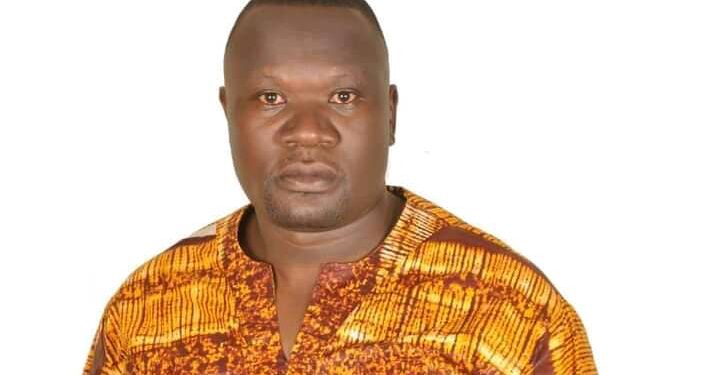President Yoweri Kaguta Museveni on Saturday 13 June closed a week public service leaders introretrospection retreat with a clear message in black and white to be change agents and leaders of socio-economic transformation through wealth creation in the country.
“That’s why I wanted all of you to be here so that we can speak the same language, homestead income with “ekibaro” (calculation), the rest will be easy,” he said. The President’s remarks were effectively received by Ministers, Permanent Secretaries and the members of the National Resistance Movement (NRM) Central Executive Committee (CEC) at the Presidential farm in Ngoma.
As has been known throughout the years, corruption has remained the most challenging impedement to effective service delivery and it would be a surprise if the technocrats left Ngoma minus tackling this menace.
The participants also came up with resolutions to deal with the rampant corruption and illegal land evictions in the country. The Anti-corruption Act should be amended as well as other relevant laws to deter persons convicted of corruption tendencies from being appointed or reappointed in public service this will make corruption a very risky venture.
The resolution above clearly rsonates with the Prsident’s recently refurbished obsession with cleaning the system of graft tendencies which he vehemently notes has retarded the country’s progress. At Kololo Independence grounds, in a seemingly coded message, the veteran leader declared war on thr corrupt in his government in a message hidden in a hyme book song “ now is the time.” Th musicians- Chameleone, Mayinja, has sang for my Bazukulu. Now let me also sing for you the one for us the seniors,” Museveni offered before the song was played through the giant speakers at the fully packed facility.
Without clari g expounding on what the now is the time statemwnt in the song meant to address, a few of us who have mastered the stepa of the charismatic father of the nation couldnt miss this one. The President was clearly emphasising the enhanced political will to smooch out all public servants whose hands are infested with vice. He has of late pointed out key government agencies and officials implicatwd in the shameless heamhorage of public funds, including Parliament, Miniatries, Local Governments, to mention but a few.
Corruption in the country is characterized by grand-scale theft of public funds and petty corruption involving public officials at all levels of society as well as widespread political patronage systems. Elite corruption in Uganda is through a patronage system which has been exacerbated by foreign aid. Aid has been providing the government with large amounts of resources that contribute to the corrupt practices going on within the country. The style of corruption that is used is to gain loyalty and support so that officials can remain in power alongside self enrichment. One of the more recent forms of corruption is through public procurement because of the lack of transparency with transactions that happen within the government.
The process of giving gifts for something in exchange has always been a feature in Ugandan tradition which the Peesident seeks to amend. In the past, this practice was the norm and not seen as illegal. This practice of patronage which has been central to politics and administration in Uganda cannot simply be stripped away overnight without the participation of everone.
Corruption Before 1986
Corruption in Uganda is not a new thing. Whereas critics in the opposition have tried to paint a picture for the vice to appear as an invention of NRM, history tells a completely different phomenon. There is a long history of corruption in Ugandan governments. Some of the governments’ level of corruption were more extreme than others.
Uganda under Idi Amin was a very repressive state to say th less. His military was very aggressive and would kill people if they felt like they opposed the regime in some way, which led to about 100,000 people being killed during his seven years in power. During Amin’s rule he took over most businesses that were run by a different race and were given to his cronies. Many businesses began to shut down because of the lack of experience and knowledge the cronies had at running those businesses. All areas of society were being mismanaged and indisciplined. Soon, Uganda under the Amin regime became known for its culture of survival, which made corruption a central aspect to society. Many people left the formal economy and switched to informal institutions where there was no government regulation.
When the National Resistance Movement gained power in Uganda, its leader Yoweri Museveni was faced with the task of reforming the government. He also had to persuade people to rejoin in the formal economy because the black market and other forms of informal institutions were widespread during the Amin regime. Museveni said that he felt like he adopted the evils of corruption. He had implemented laws and a ten-point program to help put an end to corruption in Uganda. Even though Museveni tried to reform the government, it had little impact on actually stopping corruption.
This underscores the seriousness of the challenge the President has initiated – fighting a generational vice and without any doubt he has provd over the years to have what it takes to surmount it.
Yet this is not the only challnge addressed by the seven day long workshop in as far as service delivery is conceerned. The President also dircted his days audience to take the lead in the mass sensitisation of the masses to ltake part in the four sectors of thw economy. “I always want to call the MPs from the cattle area, they don’t add on, they are just there where I left them, the situation is the same all this time. If they follow what I tell them the area would be very far. “Here the biggest problem about exporting has been the diseases brought by our traditional people who smuggle cows with foot and mouth disease from neighbouring countries. When I sold Ramaphosa 43 cows, he couldn’t take them to South Africa despite being checked with no disease. They were taken to Kenya, got embryos from them, that’s what he took to South Africa.” He elaborated, expeessing gratitude that the problem of diseases in livestock will soon be history since a mass vaccination of domestic animals two times a year will soon be undertaken. “These wonderful people have already given us the money in the budget, we are going to get 88 million doses for cows, pigs, goats and other livestock.”
The rationale of the retreat and Museveni’s participation were suitanly put in the best words by Head of Public Service and Secretary to Cabinet, Ms. Lucy Nakyobe who hailed the President for his support, guidance and presence at the retreat. “This is invaluable, and we are inspired by your dedication to serving this great nation,” Ms. Nakyobe said
As the retreat came to the conclusion, participants were filled with gratitude and optimism. Over the past week, they had been engaged in a meaningful decicussions, getting invaluable insights and strategic plans from the Fountain of Honour that will guide our nation forward.
At the end, Attorney General, Hon. Kiryowa Kiwanuka read out the resolutions of the retreat, after highlighting that the week-long discussion centred on the fight against corruption and reflecting on the mass approach to embracing the money economy with emphasis on value addition, commercial agriculture, manufacturing and industry, services and ICT.
In line with the government’s commitment to leadership to steer Uganda’s socio-economic transformation agenda, it was resolved to work as one term and one dream. The three arms of government should closely coordinate and work in harmony.
It was also resolved for public service officers to adopt and keep up with technology to enhance efficiency in service delivery, create clear and strategic goals that are citizen-centric and redirect all our efforts to achieve them. It was resolved to institutionalise mentorship in government institutions to ensure compliance and conduct regular induction programs before assumption of duty and refresher courses for Ministers and Permanent Secretaries to enhance leadership capacity.
To underscore the relevance of civic competence in the development of the country, it was resolved to develop and promote a set of national values to develop socio-economic transformation of our country. The country’s key challenges have been centered around poor service delidelivery with corruption the most salient contributor. Unemployement among the working youthful population, poor roads ans other infrinfrastructure, health facilities without adeqadequate medicine, poor education services, among others are challenges that will effectieffectively be dealt with with victory in the anti corrupcorruption fight.
The writer is the Deputy Resident City Commissioner for Kampala Central Division
Do you have a story in your community or an opinion to share with us: Email us at editorial@watchdoguganda.com













